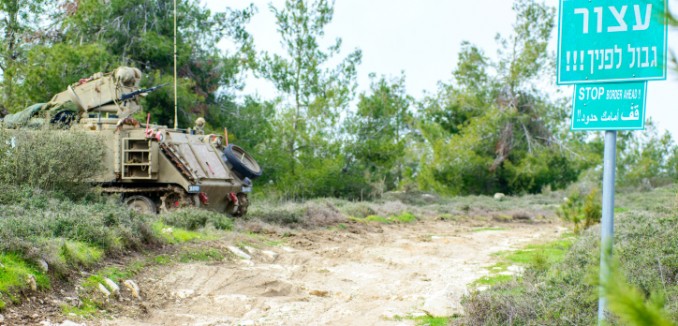The Israeli government has authorized the delivery of humanitarian aid into war-torn Syria through the nations’ shared border, an American-Israeli activist who spearheaded the initiative told The Jerusalem Post on Wednesday.
Jerusalem agreed to transfer medical, educational, and food aid to its northern neighbor, Moti Kahan said. While Israel activists have sought to help Syrians in the past, delivering aid across the border has been complicated by the fact that many towns and cities on the Syrian side of the Golan Heights are controlled by the Islamic State or the al-Nusra Front, an affiliate of al-Qaeda. The aid shipments will be handled by the Israeli Defense Forces to ensure that they do not wind up in the hands of terrorist groups. “The IDF knows whom to trust,” Kahana said.
Employees of the NGO that Kahana founded, Amalia, will bring the aid to the Israeli-Syrian border, where it will be transferred to the IDF. The aid will be then delivered to a “safe zone” around the Syrian town of Quneitra, located in the Quneitra province. The area has seen more than half of its population turned into refugees or internally displaced people since the uprising against Syrian President Bashar al-Assad began in 2011. The Free Syrian Army coalition controls portions of the province, though extremist groups operate there as well.
One of the first goals of the program will be to set up a field hospital in the safe zone, where Syrians may receive medical treatment without having to leave their country. Kahana also stressed the importance of educational aid, both in providing critical schooling for children and preventing them from being radicalized. Schools have not been open for five years in the area. “What we are doing by creating this safe zone is preventing the departure of more refugees,” he added, calling on the international community to join the initiative.
Ayoub Kara, Israel’s deputy minister for regional cooperation, gave the operation his full support, saying that Syrian “civilians are in a difficult situation and we want to help them and not wait for others.” Kara, a Druze Arab, is a member of the Knesset for Likud.
While this is the first time that the Israeli government has agreed to facilitate aid transfers into Syria, other Israeli relief efforts have been ongoing for years. Israeli food products with Hebrew labeling were found at a refugee camp near the city of Quneitra in June, leading to “severe condemnation” from the local government council.
More than 2,000 Syrians have been treated in Israeli hospitals since 2013, even though the two countries have been in a state of war since Israel’s founding. Israeli journalist Ron Ben-Yishai documented one of the risky missions the IDF undertook to rescue an injured Syrian fighter last year. Pregnant women sometimes travel to the border in order to deliver their babies in Israel, and two years ago Israeli doctors treated a young Syrian girl whose leg was shattered with a cutting-edge procedure that allowed her to walk again.
In February, Israel21c profiled Il4Syrians, an Israeli non-profit that runs secret, pinpointed humanitarian missions into Syria. Nathan Jeffay reported on IsraAID’s efforts to help Syrian refugees in Greece in a Tower Magazine article published in November.
Israeli efforts to help Syrians have not gone unnoticed. Aboud Dandachi, a Syrian refugee, has set up a website, Thank You Am Israel, to say “Thank you to the people of Israel and the Jewish people the world over, for showing kindness and charity to Syrians, whether it is through your IDF medical teams, your aid workers in Greece and the Balkans, or your congregations in North America raising money to aid and sponsor Syrian refugees.”
[Photo: Basal Awidat / Flash90]




